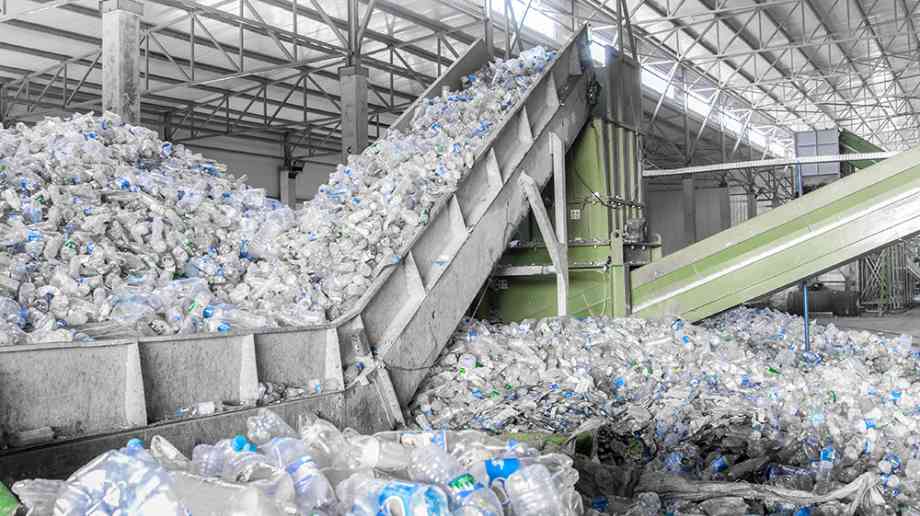Sue Robb of 4Children talks to Julie Laughton and Alison Britton from the Department for Education about the role of childminders in delivering the 30 hours free entitlement.

Improving recycling centres and improving recycling rates
Greater Manchester has improved its recycling rates to over 50 per cent by making improvements at household waste recycling centres
Recent figures have revealed that Greater Manchester is one of best performing city-regions in the country with household recycling rates rising to over 50 per cent. The national average in England is 44 per cent.
For 2021/22, the landfill diversion rate is 98.4 per cent, meaning that only 1.6 per cent of waste collected from 1 million households across the nine boroughs of Greater Manchester was sent to landfill.
The majority of waste that cannot be recycled is burned to generate electricity.
Greater Manchester has attributed the improved recycling rates to improved recycling facilities across the 20 household waste recycling centres operated by SUEZ recycling and recovery UK.
Some of the improvements include new containers for mattresses, carpets, and hard plastics as well as containers where household items can be donated for reuse.
Renew shops
Three of the recycling centres also now have shops where people can buy pre-used items that otherwise would have gone to waste. The Renew shops can be found at the recycling centres at Boysnope Wharf in Irlam, Arkwright Street in Oldham and Woodhouse Lane in Trafford.
The money generated at the shops is fed into Greater Manchester Mayor’s Charity (£100,000pa) and the Recycle for Greater Manchester Community Fund. The fund makes £220,000 available for community groups, charities and schools for projects which help prevent, reuse, or recycle household waste.
The recycling centres are open every day from 8am to 8pm (during British Summer Time), meaning they are easily accessible for local residents.
Street sweepings
Local authorities are now also able to recycle street sweepings. At a new SUEZ plant in Ashton-under-Lyne, Tameside, 90 per of the grit, soil, stones, leaves, twigs, and other debris swept from the roads is cleaned, separated, and recycled through a specialist, hi-tech mechanical sorting process. Any organic matter is extracted and transferred to other processing facilities to be turned into compost and sand and aggregates that can then be used by the construction industry.
More of the recycling is also being done locally in local recycling outlets, reducing the reliance on overseas markets. All the paper and card that is being collected in wheelie bins and at the recycling centre is taken to a paper mill in Trafford, where it is recycled into more paper and card.
David Taylor, executive director of waste and resources at GMCA said, “SUEZ has
made many improvements to the way household waste recycling centres are run since they were awarded the Greater Manchester waste and resources contracts in 2019, and I’m pleased to see that residents have embraced the changes and are recycling more and more.”
“We are giving residents new opportunities to recycle, which has benefitted our recycling rates but also has wider benefits for the city-region. Just one example is our new process to recycle mattresses from the recycling centres. Mattresses can now be broken down into 19 different component parts that can be used again, and this new process has helped to create over 25 new jobs in the city region.”
Dan Carolan, SUEZ contract director for Greater Manchester said: “We’re pleased to see that the improvements we’ve made at recycling centres have helped to increase the recycling rate in Greater Manchester. We’re always looking at ways to improve our processes and make it as easy as possible for people to recycle.
“Collectively we should all try to consume less, which in turn reduces the amount of stuff we have to create waste from. The next best thing is to donate unwanted items for reuse and to buy used goods, to give them a second life. Once waste has been created, we recycle as much of it as possible, which helps conserve resources, reduce greenhouse gas emissions, and promote a circular economy which benefits everyone.”
The simple changes made in Manchester show that change is possible. It is hoped other local authorities and waste management providers around the country can make similar changes and therefore similar improvements in recycling rates and reduction in the waste being sent to landfill.
Company Focus
Located in Bromley, Japanese Knotweed Eradication Ltd has been providing solutions in the treatment and removal of Japanese Knotweed (Fallopia Japonica) for over a decade. During this time we have mastered a repertoire of methods, from herbicidal treatments to landscaping solutions, tailored to address the unique challenges our clients face with this pervasive weed.
Event Diary
UKREiiF has quickly become a must-attend in the industry calendar for Government departments and local authorities.
The multi-award-winning UK Construction Week (UKCW), is the UK’s biggest trade event for the built environment that connects the whole supply chain to be the catalyst for growth and positive change in the industry.
Supplier Profiles
Geo Energy
At GeoEnergy Design, we're on a mission to disrupt the traditional way heating and cooling ha
Latest Features
Professor Harith Alani, director of the Knowledge Management Institute at the Open University explains how AI can be used for good and bad.
Alex Lawrence, head of health & social care, techUK sets out techUK’s Five Point Plan for CareTech.












